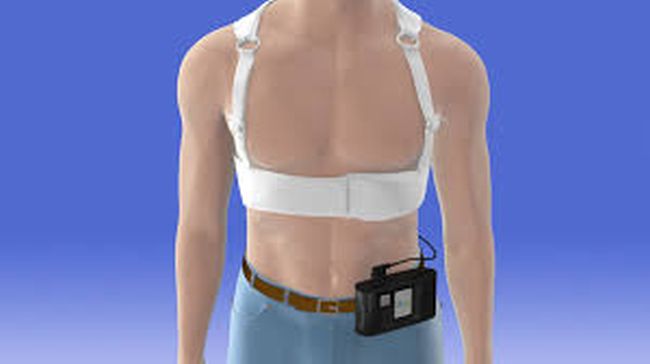With Father’s Day around the corner, June is the perfect time to focus on men’s health. And although most know that it is important to increase fruit and vegetable intake, there are some specific nutrients that are most important to men’s health. READ MORE
Category Archives: As We Age
Today’s Health Watch: LifeVest Wearable Defibrillator
A 76-year-old North Carolina man says he’s thankful to be alive after he nearly died on his kitchen floor this past April, thanks to a wearable defibrillator. I have actually had the opportunity to deploy these vests with young patients as well, with equally positive results. READ MORE
Are Your Supplements Killing You?
Certain benefits that have been widely publicized for many years regarding dietary supplements may be ill-advised at best, according to a recent study in the Archives of Internal Medicine.
Indeed, one might almost say that confusion abounds. This new study on women’s health reports that dietary supplements are resulting in a higher mortality rate for women. But before we start to panic, let’s look at a few facts.
1) This study was conducted on older women with a mean age of 61 years.
2) Those taking iron supplements showed the greatest risk of earlier mortality.
Excess iron in the bloodstream is associated with increased atherosclerosis and subsequent heart attacks and strokes. It acts as a catalyst that increases the risk of free radical damage to the vascular system and associated tissue, thereby accelerating the aging process.
But back to the study.
When attempting to analyze this study, the most important piece of information is that these women are in a post-menopausal group that would no longer need to take extra iron to maintain health. After loss of menses, the risk of iron-deficiency anemia is low, and the risk of over accumulation increases.
Of course, most women who are trying to stay healthy are probably getting enough iron from fortified foods and dark green vegetables, as well as the occasional intake of red meat.
So here’s the bottom line: Iron supplementation is needed for the iron-deficient person. This is much more common in younger women, especially those who experience a heavy menstrual flow each month.
So, my recommendation for older men and women is to be smart, have blood work to check your iron status. Unless you receive a doctor’s indication that you are iron deficient, it’s best to skip that vitamin that contains iron.
Technology & the Natural Approach to Medicine
 As recent medical history demonstrates, it is not a question of making a choice between natural approaches to health vs. technology.
As recent medical history demonstrates, it is not a question of making a choice between natural approaches to health vs. technology.
What is required is a new synergy that can only come from a greater human respect for nature and the natural needs and responses of the human body, to be followed by the intelligent application of lessons learned.
Man’s technological arrogance has led us down a mistaken path in medicine on more than one occasion, only to reveal the damage that results from a lack of applied wisdom.
In the 1980s, a study was designed to test how we could improve the survival of men who had suffered a heart attack.
The first trial was meant as a study of the efficacy of Drug A. When Drug A caused statistically more deaths when taken by study participants than if no drug had been taken, it was abandoned. A new trial was begun to study the efficacy of Drug B. The result of the tests using Drug B was the same as the tests using Drug A: More men dying. Based on the overall results, the entire study was eventually abandoned.
Some years later, a review of the study revealed that the men who were more likely to survive had one peculiar thing in common: They were frequent dog-walkers.
But was this really an unpredictable revelation? Walking has been perceived as man’s best medicine since it was first proclaimed as such by Hippocrates in 450 BC.
What should we do with this knowledge? Prescribe scooters to overweight post-MI patients? Operate on patients with coronary artery disease who could have been treated, along with obesity, hypertension and diabetes, by regular walking? Perform leg-bypass operations on individuals with claudication who could have been equally well treated with a regimen of walking and a healthy lifestyle?
Or do we come to a realization that spending billions of dollars bailing out the automobile industry only fuels the fire of mass inactivity – regardless of the effects on the manufacturing sector and the broader economy.
Curiously, the relatively new phenomenon of “exergaming” may be one persuasive answer to preventing obesity, diabetes and hypertension in our youth.
Exergaming is the catch-name for video games and technology-based activities that result in calorie burning. One of the more commonly known exergames is Wii Fit. The problem is that “evidence exists that spending time outdoors is the strongest correlate of physical activity among preschool-aged children,” as quoted from the July 2011 Archives of Pediatric & Adolescent Medicine, 2011; 165(7): 667-669.
I have repeatedly cautioned about using technology-based answers to problems that are for the most part a result of technology dependency.
An easy, simplistic example that highlights the unintended consequences of this type of approach is the handicapped scooter. With obesity at the root of so many of our nation’s health and financial problems, we have companies marketing scooters directly to the public as a medically necessary device. At first glance, these scooters may appear as a great solution that enables handicapped people to be mobile indoors and out. But the ultimate effect is that the overweight diabetic person moves less, resulting in more weight gain, worsening diabetes and the deterioration of vascular health. This further results in even poorer blood flow to the legs, further limiting the patient’s mobility.
Which leads me to conclude by reprising another oft-repeated piece of advice that I impart to all of my patients.
Do not forget the best exercise: Walking.
Walking is the live-longer, anti-diabetes and lower-your-cholesterol sport for all weathers and all ages, starting in early childhood – just as soon as your toddler learns to stand on his or her own two feet.
In fact, in the healthiest cultures, there is a common proverb that sums up the basis for healthy living: “We have with us at all times two doctors – the right foot, and the left foot.” Words to live by.
